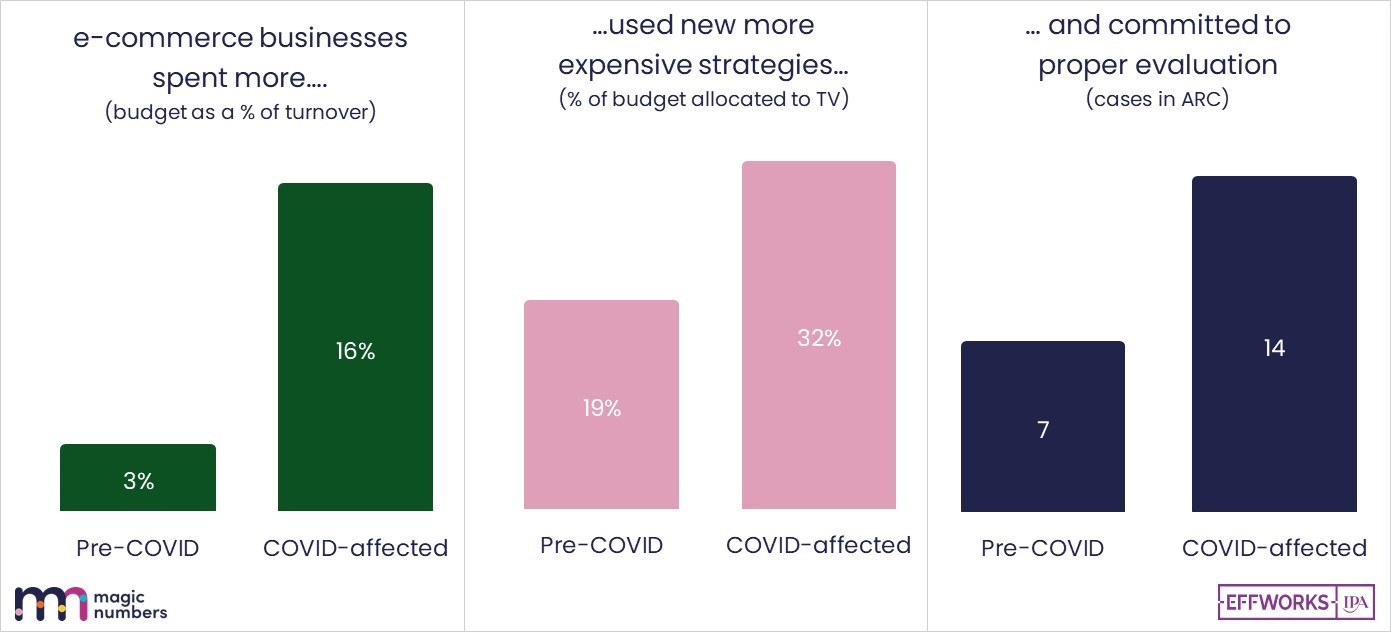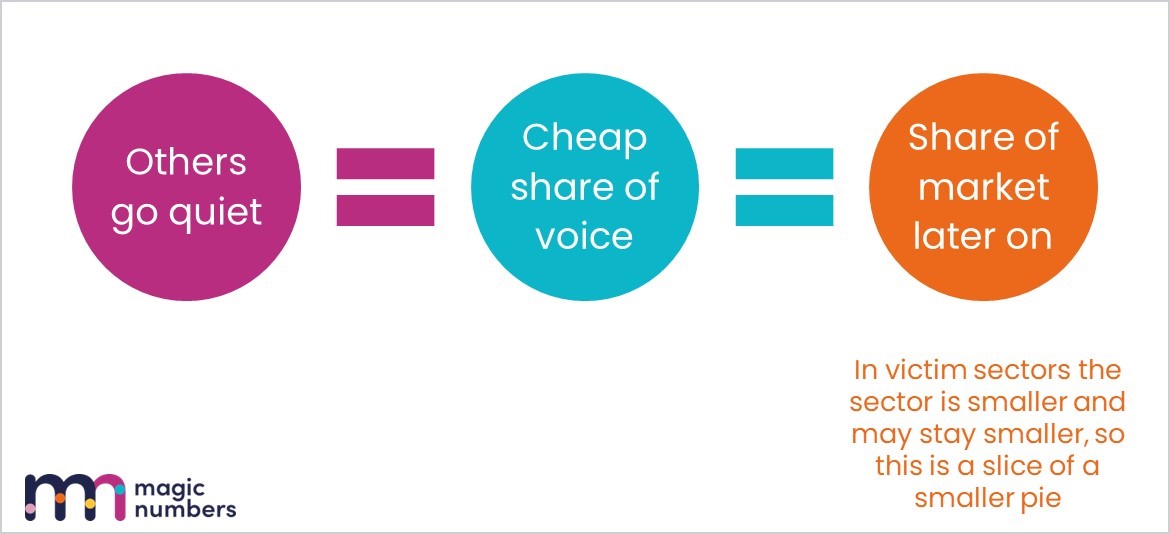Up until this week, talk of recession was just that. Talk.
But now it’s actually happening. GDP figures just out show the economy is getting smaller.
And so, in every business, fraught conversations are going on. Finance departments are questioning every purchase and marketers are working on how to be part of the solution, not part of the problem.
The numbers matter in these debates. CFOs need evidence they can believe on what should be kept vs. what can be cut. The ideal is a recent, econometrics study, done and communicated properly.
Those without econometrics must be content with looking to the past, but it’s tough. The well-established evidence for “Don’t go dark” is now 30 years old, and it’s hard to rely on advice that’s the same for every business.
“Don’t go dark” is too blunt
So, this year, to add more recent evidence, magic numbers partnered with the IPA to look at the strategies that worked during the COVID-19 recession.
We found that “Don’t go dark” is too blunt as a piece of advice.
Recessions change the economy as well as causing it to contract, and that means some sectors really suffer, others are only affected a little, and there are even some that actually benefit. The economic change is different in each recession, so different sectors are victims vs. beneficiaries, but the effect is never entirely even.
Using the ARC database (almost 500 econometrics evaluations by OMG, D2D, IRI, Ekimetrics, magic numbers & VCCP) we studied successful strategies during COVID.
We found that:
- In sectors where the effects of the economic upheaval are worst and the bounce-back may not come, it’s better to postpone advertising until the recovery – to go dark.
- In sectors that are relatively secure, the best strategy is to look for low-cost media buys, when competitors are quiet for cheap share of voice and so good value campaigns.
- In sectors that actually benefit from changes in the economy, advertisers can and should make the most of the opportunity with big bets in the advertising plan.
Only buy the dip if you’re going to get the bounce
The “Don’t go dark” advice is advertising’s equivalent of a strategy investors use – buying the dip. You buy an asset for cheap when no-one else is buying, in this case mental availability. Then you sit back and enjoy the profits when demand recovers, and with it, the value of your asset.
This strategy absolutely works as long as your sector is secure.
In FMCG, which was a secure sector during COVID, advertisers followed the advice. They increased spending at a time when media costs were low, and they got high returns per £1 spent.
The chart below shows the evidence from ARC. The left pane shows that a higher proportion of FMCGs spent £3m or more per year during COVID, and the right pane shows that the more FMCG advertisers spent, the higher their return on investment.





